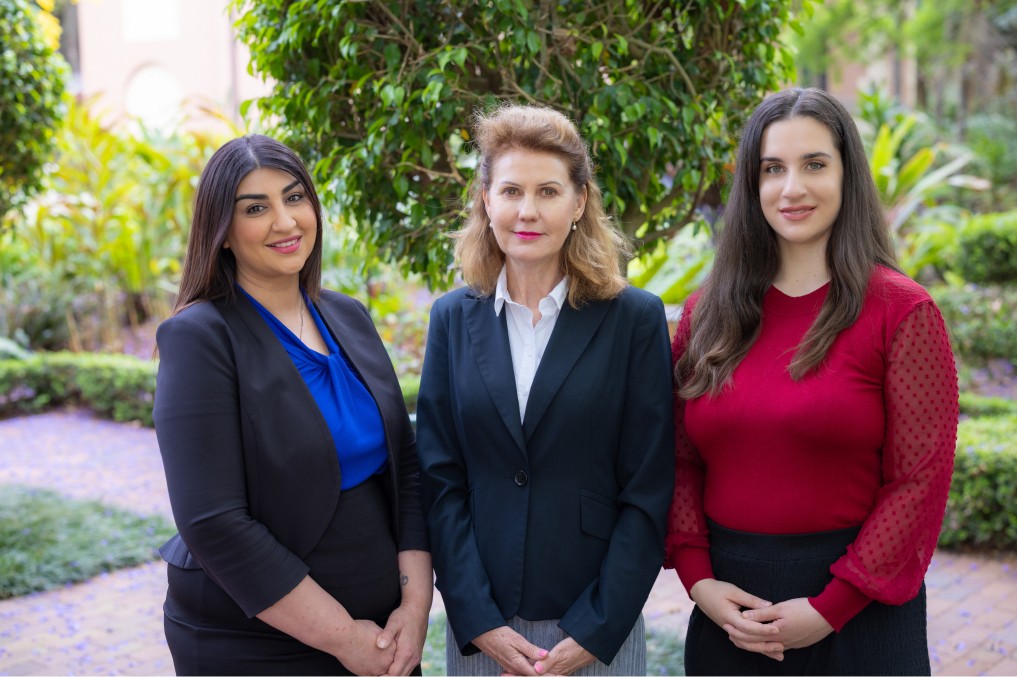



He has been performing minimally invasive and complex spine surgery for 25+ years and has built his reputation on his conservative approach to spine surgery, and his dedication to patient care and rehabilitation.
A/Prof Parkinson completed his neurosurgical training in Sydney where he achieved Fellow of the Royal Australasian College of Surgeons (FRACS) in 2003 and graduated as a Consultant Neurosurgeon. He then embarked on additional sub-specialised spine surgery fellowship training in the USA, specialising in the absolute latest minimally invasive spine surgery techniques, including keyhole and endoscopic spine surgery.

MBBS, BMedSci, FRACS
A/Prof Parkinson operates from Sydney’s most advanced neurosurgical and spinal surgery hospitals, including St Vincent’s Private Hospital, Prince of Wales Private Hospital and The Mater Hospital.
These hospitals have specialised neurosurgical facilities, including cutting-edge imaging equipment and neurosurgical navigation systems, but most importantly, they have have well-trained specialised theatre nursing and clinical staff, and physical rehabilitation services.
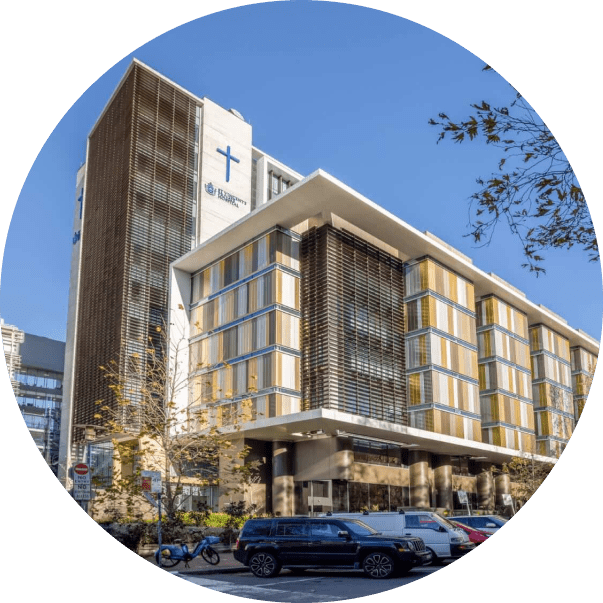
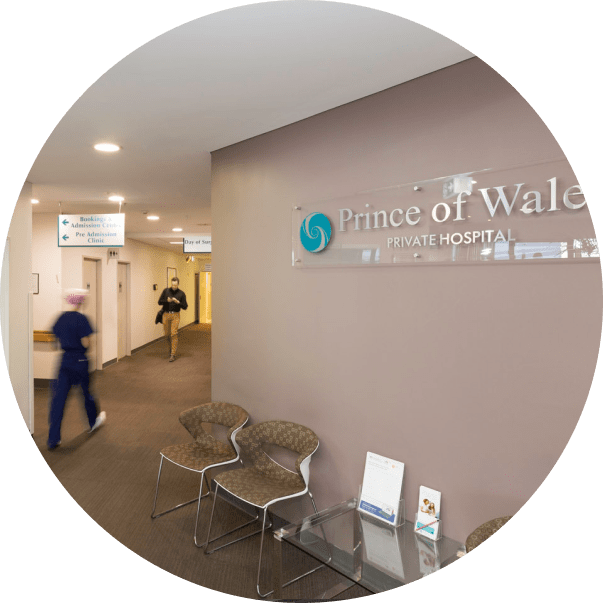
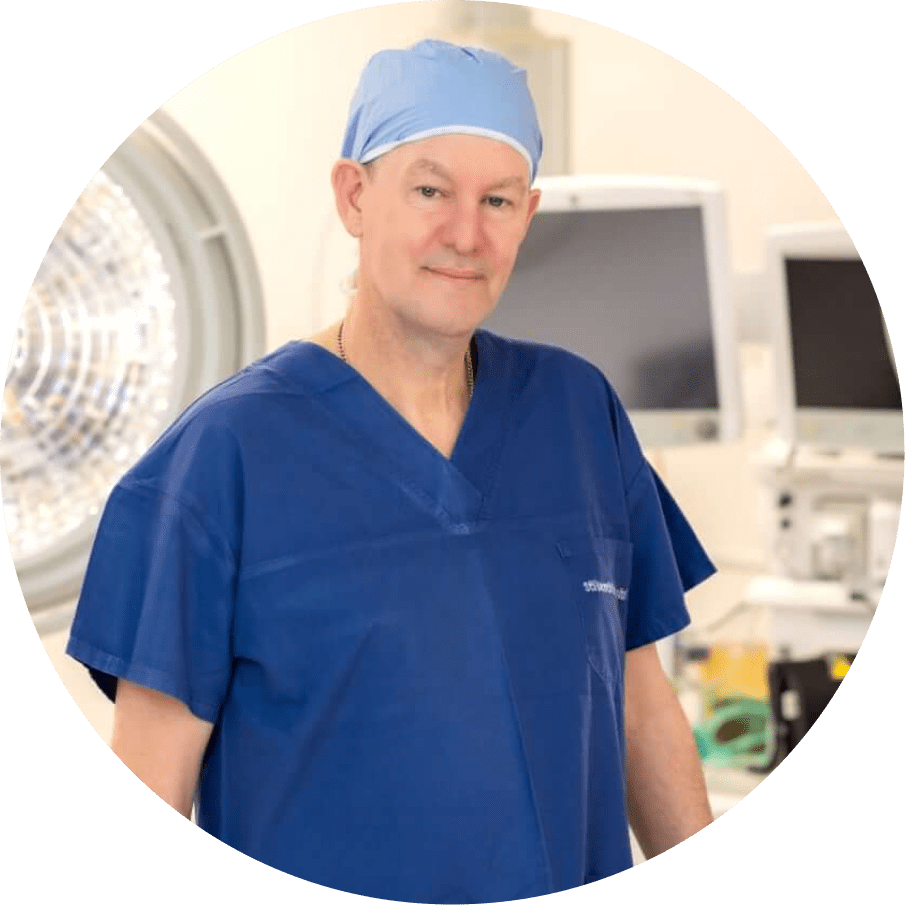
MBBS, BMedSci, FRACS
Neurosurgeon with 25+ Years of Experience in Spine Surgery.
Endoscopic spinal surgery is a minimally invasive spine surgery technique that offers potential benefits compared to conventional spine surgical approaches, as it results in less collateral damage to the surrounding tissue of the spinal column. A/Prof Parkinson performs endoscopic spine surgery in Sydney for a range of common spinal conditions.
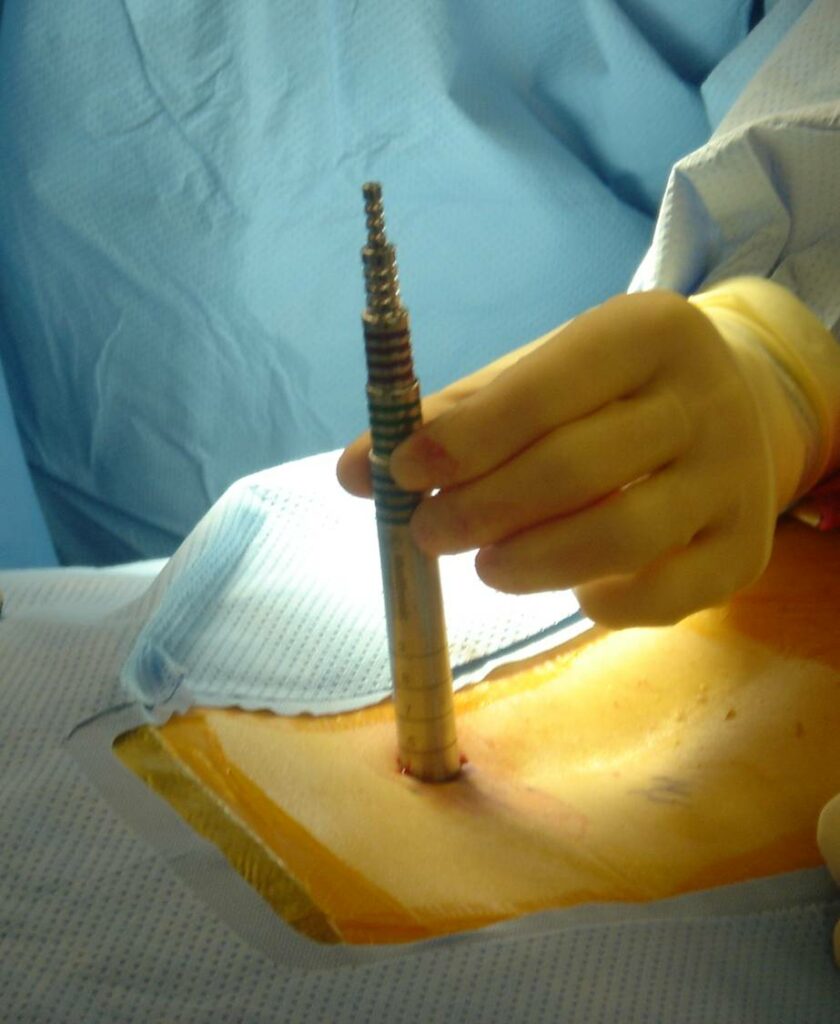
Minimally Invasive Spinal Surgery (MISS) is a surgical approach used to treat various spinal conditions with less disruption to the surrounding tissues compared to traditional open surgery, which involves a large cut to gain access to the spine.
Types of minimally invasive spine surgery include:
The goal of minimally invasive spine surgery is to achieve the same therapeutic outcomes while minimising trauma, reducing pain, shortening recovery times, and lowering the risk of complications associated with open surgeries.
As opposed to open spine surgery which leaves a large scar and tissue damage, minimally invasive surgical approaches can be faster, safer and require less recovery time. This is due to the reduced trauma to the muscles and soft tissues (compared to open procedures).

The potential benefits of MISS for patients are:
Although uncommon, there is always a small chance that the initial minimally invasive spine surgery cannot be completed, requiring either a second procedure or full open surgery.
Because the spinal nerves, vertebrae and discs are located deep inside the body, any approach to gain access to the spinal area requires moving the muscle tissue out of the way.
In general, this is facilitated by utilising a small incision(s) and guiding instruments and/or a microscopic, and/or an endoscope (video camera) through these incisions.
Please get in touch with our reception team if you have a general enquiry for A/Prof Parkinson, or your would like to book an appointment.
